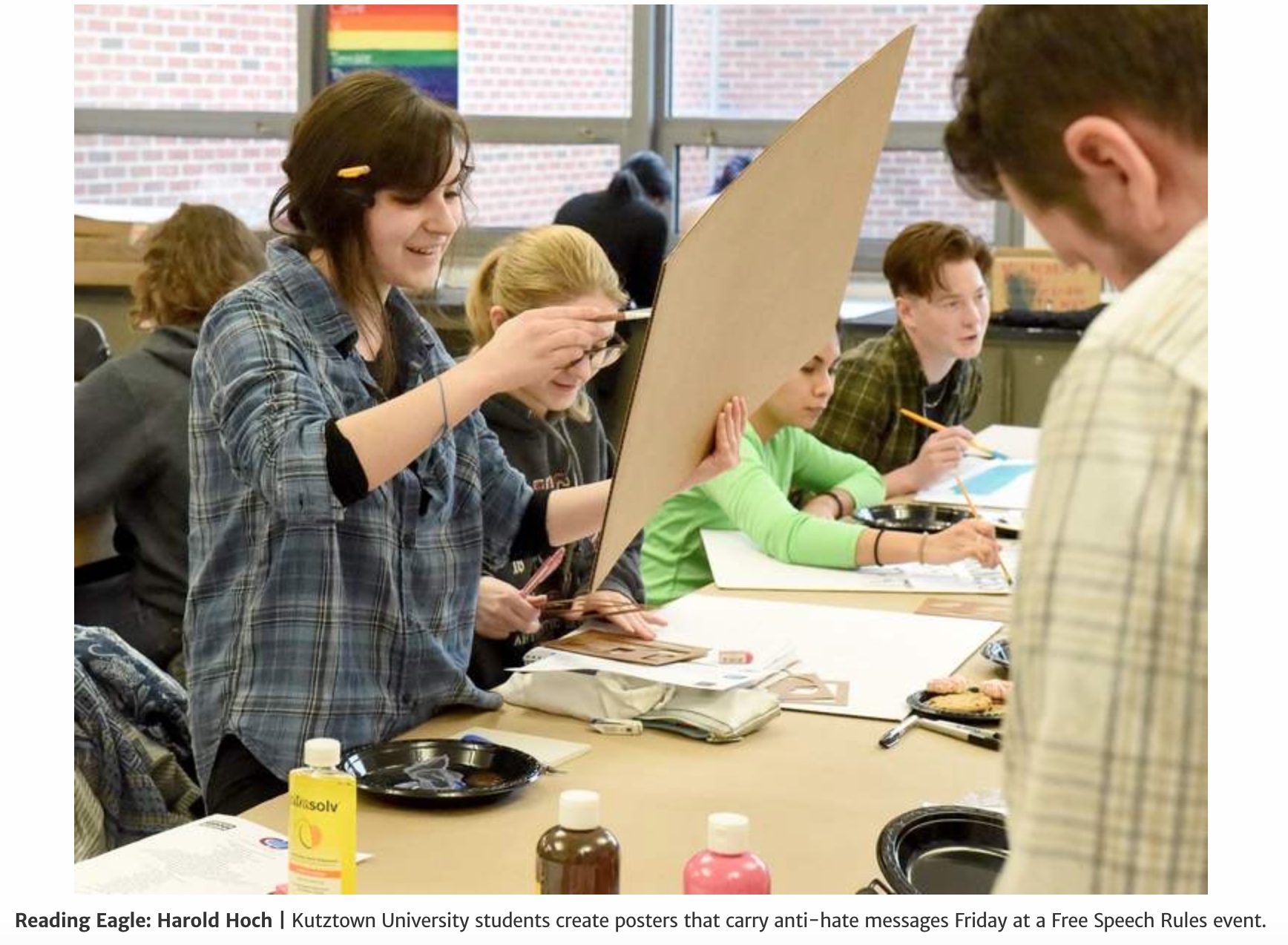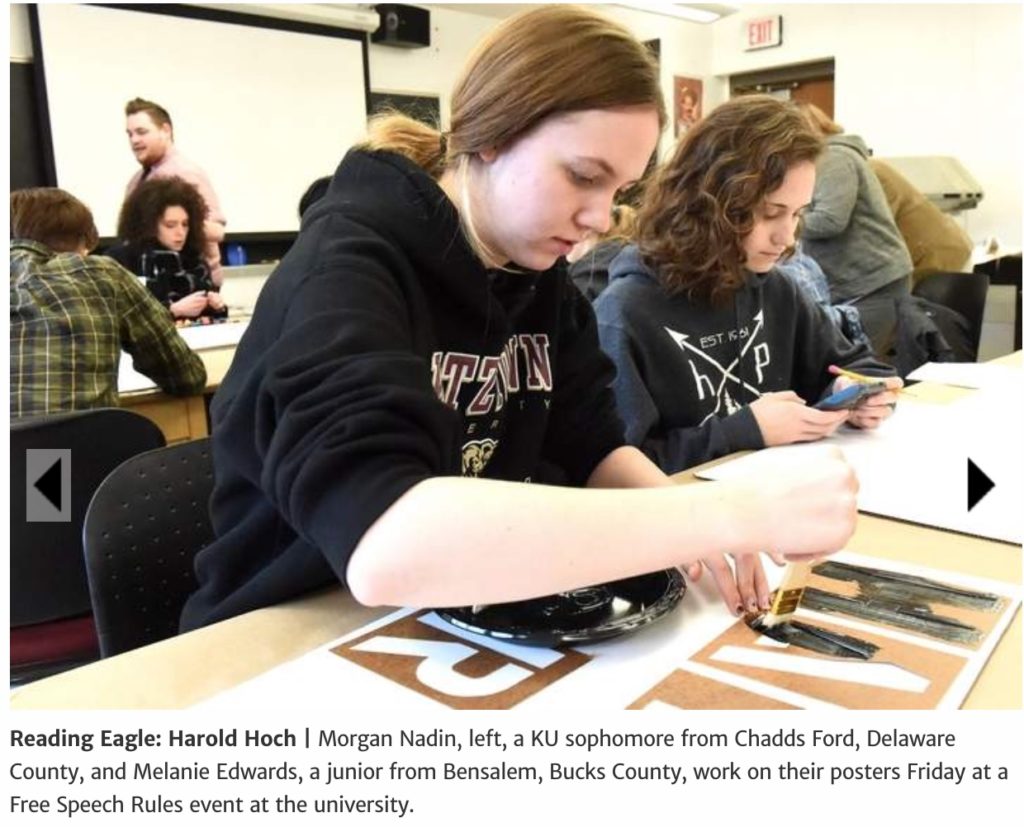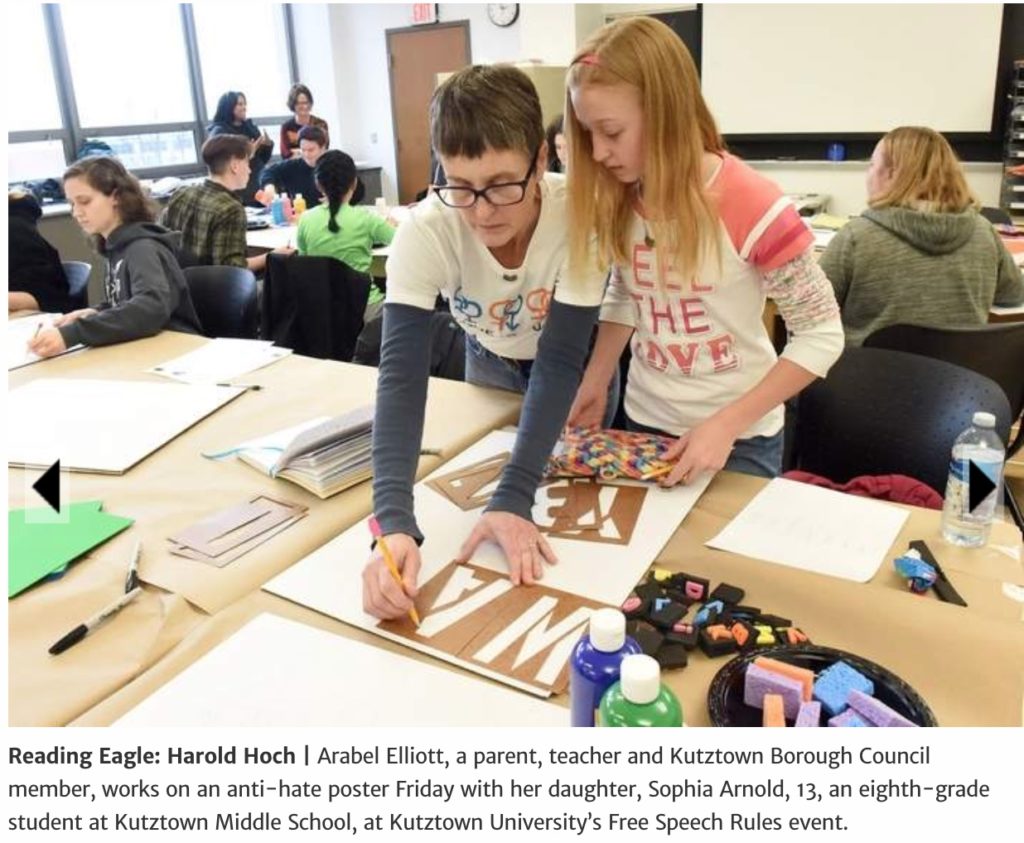Free speech rules at Kutztown University event
Students learned how to respond to protests without being confrontational.
WRITTEN BY RON DEVLIN
Free speech rules at Kutztown University, but there are rules about how to respond when speech is offensive or hateful.
At a session on Friday, aptly named Free Speech Rules, campus officials advised students ways to combat offensive speech without being confrontational.
One way is to simply walk past protesters, paying as little attention as possible to their message. Indeed, the university’s Bias Response Task Force has begun a “Walk on By” initiative.
Sgt. Barry Althouse advised students to hold counter protests on another area of campus, as far away as possible. “It’s better to be far away,” he advised. “That way you’re not disturbed by what’s going on.”
That wasn’t the case in December, when a group calling itself Matthew 24 Ministries gathered outside South Dining Hall. They held signs that read “Obey Jesus or Hellfire” and “You are not a good person.” Other signs targeted feminists, gays, the pope and Muslims.
Campus police were on alert as about 200 Kutztown students staged a counter protest. Tension increased as opposing groups engaged in verbal sparring.
The university responded by creating the Bias Response Task Force and holding Unity Day, a celebration of diversity on campus. With community groups from Kutztown, they launched Replace the Hate campaign.
Vicki Meloney, professor of communication design, chaired the session in Sharadin Art Center on campus. About 40 students, faculty, campus police and advisers attended.
Dr. Jennifer Schlegel, professor of anthropology, explained that almost all forms of speech are protected under the First Amendment to the Constitution of the United States. “Unlike other countries,” she explained, “we do not restrict the content of speech.” Responding to a student question about why campuses seem to be targeted by hate groups, Schlegel suggested it is because campuses are citadels of free speech.
“For many of our students, it’s their first engagement with offensive speech,” she said. “Because it’s their first encounter, it is all the more powerful.”
As part of the three-hour program, Meloney had art students create drawings and posters with anti-hate themes. “Art gives people the ability to respond positively to a negative event,” she said. Meloney made a list of possible themes for the artwork. Included were “Ease the Hate,” “Don’t Hate, Educate” and “Replace the Hate with .”
Morgan Nadin, a sophomore communications design student from Delaware County, focused on the words that came up again and again in the session – hate and hurt. “I wanted to incorporate hate and hurt into my artwork,” she said. After some thought, she created a poster that read: “Hate Is Hurt.”





